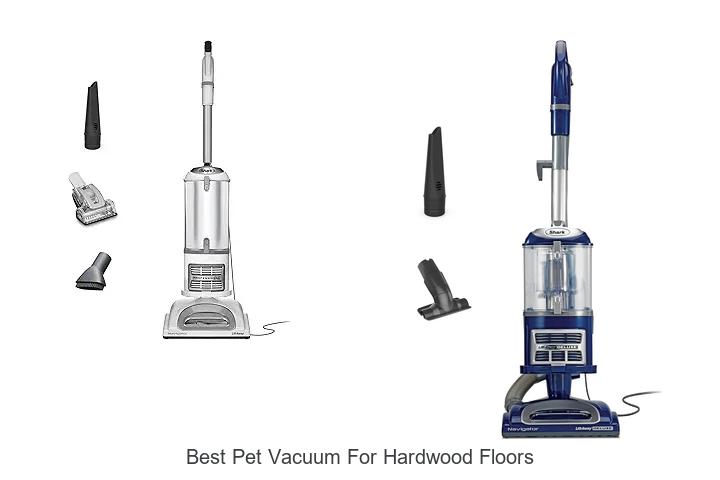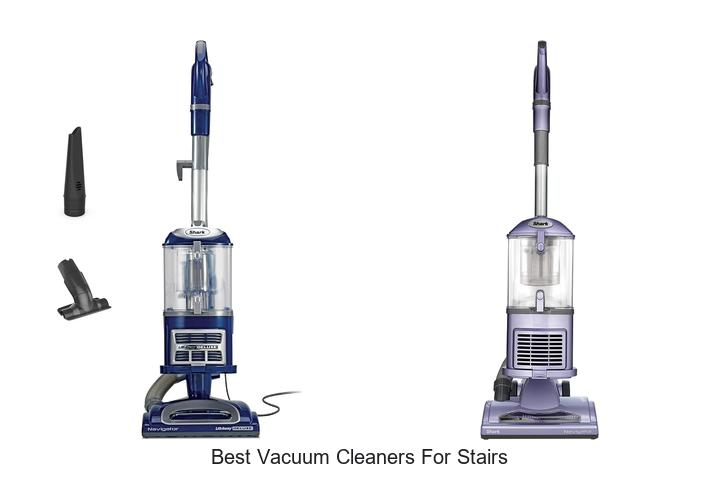Is Dyson Vacuum Worth It? Pros, Cons & Honest Review 2024
Choosing the right vacuum can feel overwhelming with so many options out there. Dyson vacuums have gained a reputation for innovation and powerful performance, but are they really worth the investment? If you’re wondering whether a Dyson vacuum fits your cleaning needs and budget, you’re not alone.
In this article, you’ll discover what sets Dyson apart from other brands and whether its features justify the price. Whether you have pets, allergies, or just want a cleaner home, understanding Dyson’s benefits will help you make an informed choice. Let’s dive into what makes Dyson vacuums stand out and if they’re the right fit for your lifestyle.
Overview of Dyson Vacuums
Dyson vacuums combine advanced technology with a variety of models designed to suit different cleaning needs. Understanding their key features and options helps you decide if they match your requirements.
Key Features and Technology
Dyson vacuums stand out with powerful suction generated by cyclonic technology, which maintains consistent performance even as the bin fills. You benefit from HEPA filtration that traps 99.97% of particles down to 0.3 microns, making these vacuums ideal for allergy sufferers. Most models include the Ball™ technology, allowing smooth steering around furniture. Cordless designs offer up to 60 minutes of runtime, while motorized brush heads tackle pet hair and deep carpet cleaning effectively.
Range of Models Available
Dyson offers various models tailored to different needs:
- Cordless Stick Vacuums (e.g., V11, V15 Detect) provide versatile cleaning with lightweight maneuverability.
- Upright Vacuums (e.g., Ball Animal 2) deliver powerful suction for homes with pets or thick carpets.
- Robot Vacuums (e.g., Dyson 360 Eye) offer automated cleaning with intelligent navigation.
- Handheld Vacuums (e.g., V7 Trigger) provide quick cleanup for small areas or vehicles.
Selecting a model depends on your floor types, pet presence, and desired features like runtime or filtration.
Performance Evaluation
Understanding Dyson vacuum performance helps you assess if it meets your cleaning needs. This section breaks down suction power, handling, and noise levels.
Suction Power and Cleaning Efficiency
Dyson vacuums deliver strong suction through patented cyclonic technology. Multiple cyclones generate powerful centrifugal forces that separate dust and debris effectively. Models provide suction ranging from 20 to 150 Air Watts, depending on type. For example, the V15 Detect offers up to 230 AW, ideal for deep carpet cleaning. HEPA filters trap 99.97% of particles as small as 0.3 microns, improving air quality while cleaning. This efficiency suits even pet owners and allergy sufferers who require thorough debris removal.
Handling and Usability
Dyson vacuums incorporate Ball™ technology or lightweight designs for easy maneuverability. Upright models use Ball™ to pivot smoothly around furniture, while cordless sticks weigh between 5 to 6 pounds, reducing fatigue during use. Controls position conveniently on handles, and detachable components like hand-held units and brush heads enable versatile cleaning. If you prefer cordless vacuums, models such as the V11 or V15 provide up to 60 minutes of runtime, balancing power with portability.
Noise Levels
Dyson vacuums operate within noise levels of approximately 70 to 80 decibels, depending on the model and mode. The V11 and V15 use acoustic engineering to minimize noise compared to older models. For reference, 70 decibels equals average conversation volume, making Dyson vacuums quieter than many traditional vacuums that can exceed 85 decibels. Using eco or quiet modes further lowers sound output when full power isn’t necessary.
Durability and Maintenance
Durability and maintenance play key roles in assessing whether a Dyson vacuum suits your needs. Understanding build quality and upkeep demands helps you evaluate long-term value.
Build Quality and Longevity
Dyson vacuums feature robust construction with high-grade materials like aluminum and impact-resistant plastics. Sealed components and reinforced housings resist wear from daily use. Models undergo rigorous testing, including drop and stress tests, contributing to average lifespans of 5 to 7 years under regular usage. Warranty coverage typically ranges from 2 to 5 years, covering motor and parts defects, adding assurance about longevity.
| Aspect | Details |
|---|---|
| Materials | Aluminum, impact-resistant plastics |
| Average Lifespan | 5 to 7 years (regular use) |
| Warranty | 2 to 5 years (motor and parts) |
Ease of Cleaning and Parts Replacement
Dyson designs vacuums with user-friendly maintenance in mind. Clear dust bins feature quick-release buttons for easy emptying without mess. Washable filters require cleaning every 1 to 3 months, depending on usage, extending filter life and maintaining suction. Replacement parts, including brushes and batteries, are widely available and easy to swap without special tools. Maintenance guides and tutorial videos support hassle-free upkeep, helping you sustain optimal performance.
Price and Value Comparison
You face a significant upfront cost when buying a Dyson vacuum, but its value depends on how it compares with competitors and its long-term benefits.
Cost Versus Competitors
Dyson vacuums range from approximately $300 to $700, placing them in the premium segment. Competitors like Shark, Hoover, and Bissell offer models between $100 and $400. While non-Dyson options cost less, they often lack Dyson’s advanced cyclonic suction, HEPA filtration, and durable materials. Cordless Dyson models provide up to 60 minutes of runtime with consistent suction, whereas similar-priced competitors may struggle with battery life and performance. Dyson’s Ball™ technology and ergonomic design also improve handling compared to many less expensive vacuums. The initial price reflects innovation, build quality, and cleaning efficiency that frequently surpasses lower-cost alternatives.
| Brand | Price Range | Notable Features | Runtime (Cordless) | Filtration |
|---|---|---|---|---|
| Dyson | $300–$700 | Cyclonic suction, Ball™ technology | Up to 60 minutes | HEPA – 99.97% filter |
| Shark | $150–$400 | Anti-allergen seal, DuoClean | 20–40 minutes | HEPA filters (varies) |
| Hoover | $100–$300 | WindTunnel technology | 20–30 minutes | Basic filtration |
| Bissell | $100–$300 | SmartSeal allergen system | 30–40 minutes | Basic to HEPA options |
Long-Term Investment and Warranty
Dyson vacuums last 5 to 7 years under regular use due to high-quality components like aluminum and impact-resistant plastic. This longevity offsets the higher purchase price. Their 2 to 5-year warranty covers defects and helps protect your investment, unlike many competitors with shorter warranty periods. Maintenance costs stay low with reusable filters and easy-to-clean dust bins, and parts replacement remains accessible. You benefit from ongoing Dyson support, including tutorials and customer service, reducing the risk of early replacement and maximizing vacuum lifespan.
Customer Satisfaction and Reviews
Customer feedback on Dyson vacuums highlights clear trends in satisfaction and common issues. Understanding this feedback helps you assess if a Dyson vacuum meets your expectations.
Common Positive Feedback
Users praise Dyson vacuums for powerful suction and effective cleaning, especially on pet hair and fine dust. Many highlight the lightweight design and ergonomic Ball™ technology, which eases maneuverability around furniture. Cordless models receive frequent compliments for long battery life, offering up to 60 minutes of runtime without loss of suction. The advanced filtration system, capturing 99.97% of particles, earns strong approval among allergy sufferers. Several reviews note the simple maintenance process, including easy-to-empty dust bins and washable filters. Overall, durability and build quality contribute to a high satisfaction rate, with many users reporting reliable performance over several years.
Typical Complaints and Issues
Complaints often focus on the premium price point, with some users finding the cost a barrier despite product quality. Battery life, though sufficient for most, can feel limiting for larger homes or extensive cleaning sessions. Some models experience reduced suction when the dust bin fills quickly, requiring frequent emptying. Noise levels, while generally lower than traditional vacuums, sometimes draw criticism during intensive cleaning modes. A small number of reviews mention occasional clogging in narrow intake points, which calls for regular maintenance to prevent. Replacement parts, although readily available, tend to be expensive, adding to the overall cost of ownership.
Conclusion
Choosing a Dyson vacuum means investing in advanced technology and reliable performance that can make your cleaning routine easier and more effective. If you value powerful suction, excellent filtration, and durable design, Dyson offers features that stand out from the competition. While the upfront cost is higher, the long-term benefits and user satisfaction often justify the price.
Ultimately, whether a Dyson vacuum is worth it depends on your specific needs, budget, and cleaning habits. If you prioritize quality, efficiency, and ease of use, Dyson is a strong contender that delivers on its promises. Your investment in one could transform how you maintain your home’s cleanliness for years to come.


